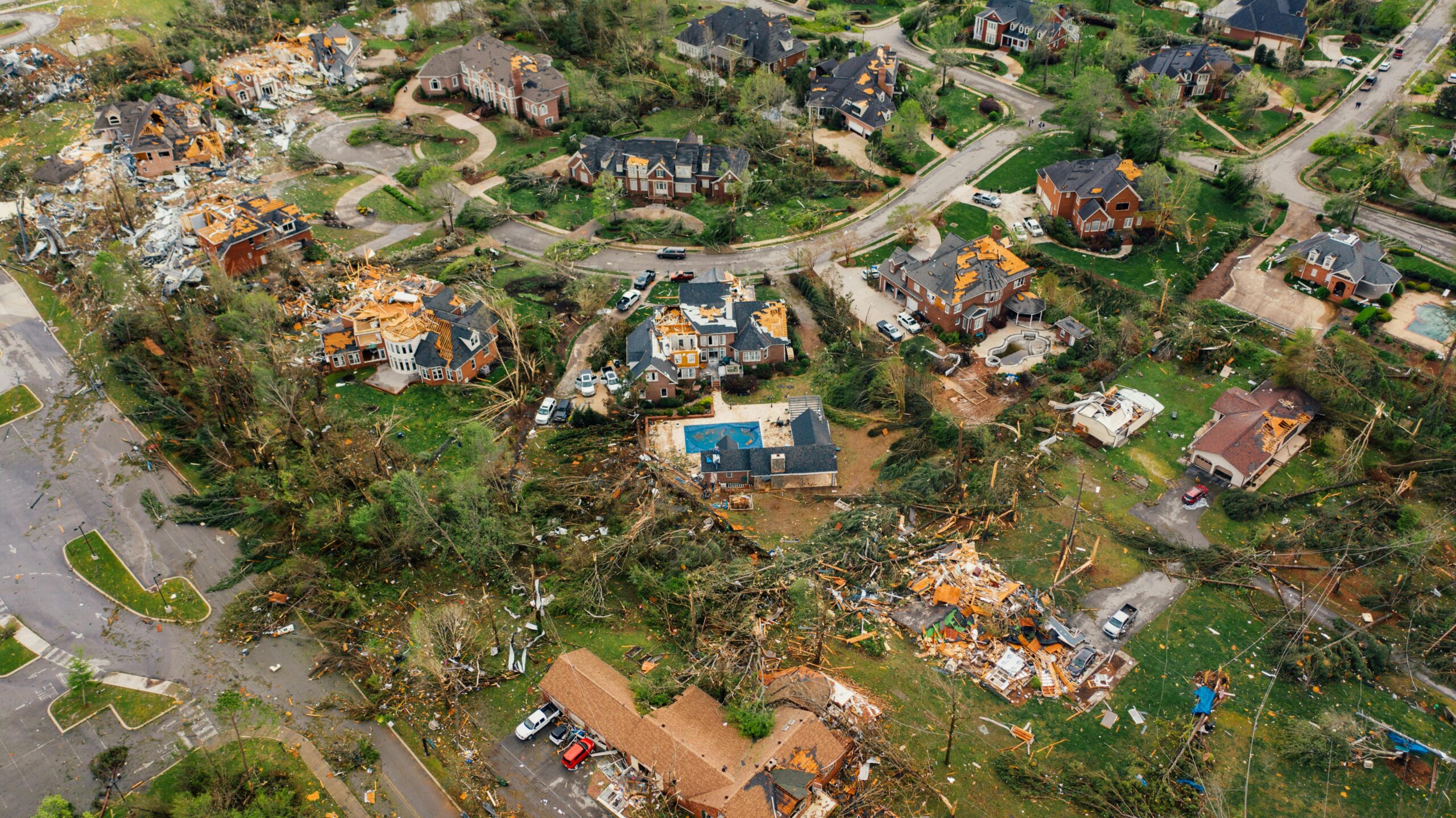Hurricane Season is Coming: Why Understanding Home Insurance is Crucial
As hurricane season approaches, homeowners in coastal and vulnerable areas need to prepare. Beyond stocking up on supplies and creating an evacuation plan, a solid understanding of your home insurance policy is paramount. A key component of that understanding involves Understanding Home Insurance Hurricane Deductibles.
Hurricanes can cause significant property damage, and without adequate insurance knowledge, you could face unexpected financial burdens. Your home insurance policy is designed to protect you financially from covered losses, but the specifics, especially regarding hurricane deductibles, can be complex. Being informed ensures you can navigate the claims process effectively and recover from potential damage with greater peace of mind. To prepare for a hurricane, check out our guide on how to prepare for a hurricane.
Decoding Deductibles: A Deep Dive into Home Insurance Basics
Before delving into the specifics of hurricane deductibles, it’s essential to grasp the fundamentals of home insurance deductibles in general. A deductible is the amount you pay out-of-pocket before your insurance coverage kicks in. For instance, if you have a $1,000 deductible and your home sustains $5,000 in covered damage, you’ll pay the first $1,000, and your insurance company will cover the remaining $4,000.
Deductibles come in various forms and amounts, influencing your premiums and overall financial risk. A higher deductible typically translates to lower premiums, as you’re assuming more of the initial cost in the event of a claim. Conversely, a lower deductible means higher premiums, but less out-of-pocket expense when you file a claim. Understanding this trade-off is crucial when selecting a policy that fits your financial situation and risk tolerance. Consider this alongside other factors that cause homeowners insurance premiums to rise, as discussed in our article on why homeowners insurance premiums are rising.
Understanding Home Insurance Hurricane Deductibles: What You Need to Know
Understanding Home Insurance Hurricane Deductibles is crucial for homeowners in hurricane-prone areas. Unlike standard deductibles that apply to most covered perils, hurricane deductibles are specifically triggered by hurricane damage and are often significantly higher. This difference is because hurricanes tend to cause widespread and costly damage, leading insurance companies to implement higher deductibles to manage their risk exposure.
Hurricane deductibles are designed to protect insurance companies from being overwhelmed with claims after a major storm. They are typically structured as either a percentage of your home’s insured value or as a fixed dollar amount. The insured value of your home is the amount it would cost to rebuild it, not necessarily its market value. It’s imperative to understand how your hurricane deductible is calculated and what triggers it. For more information on how insurance companies handle claims, it’s useful to be aware of when an insurance company can cancel a policy if too many claims are submitted.
Percentage vs. Fixed Deductibles: Which Hurricane Deductible is Right for You?
Hurricane deductibles typically come in two forms: percentage deductibles and fixed-amount deductibles. Understanding the difference is crucial for making an informed decision about your home insurance coverage.
- Percentage Deductibles: These are calculated as a percentage of your home’s insured value. For example, a 5% hurricane deductible on a home insured for $300,000 would result in a $15,000 deductible. This means you would pay the first $15,000 of covered hurricane damage before your insurance coverage kicks in.
- Fixed-Amount Deductibles: These are a set dollar amount, such as $1,000, $5,000, or $10,000. Regardless of your home’s insured value, you would pay this fixed amount before your insurance covers the remaining damage.
The right type of deductible for you depends on your financial situation and risk tolerance. A percentage deductible can be significantly higher for expensive homes, potentially creating a substantial financial burden after a hurricane. However, it might also offer lower premiums than a fixed-amount deductible. Consider carefully how much you can comfortably afford to pay out-of-pocket in the event of a major storm.
Consider reviewing your coverage to avoid uncovered claims, further information is available here: uncovered claims in standard property insurance.
When Does a Hurricane Deductible Apply? Triggering Events Explained
A crucial aspect of Understanding Home Insurance Hurricane Deductibles is knowing when they actually apply. Hurricane deductibles are not triggered by every storm; they are specifically activated by events that meet the definition of a hurricane as defined by the National Weather Service (NWS).
Typically, a hurricane deductible is triggered when a hurricane is officially named by the NWS and its sustained wind speeds reach a certain threshold (usually 74 mph). Some policies may also specify that the hurricane must make landfall within a certain distance of your property. It’s important to carefully review your policy to understand the specific triggering events and geographic parameters.
In some cases, a named storm deductible may apply to damage caused by named tropical storms that don’t reach hurricane strength. This deductible is usually lower than a hurricane deductible. Understanding the difference between these deductibles is essential for accurately assessing your potential out-of-pocket expenses. Remember to stay safe when driving during these dangerous storms, consider reviewing these safety tips for driving in heavy rain.
Navigating the Claims Process: Tips for a Smooth Hurricane Insurance Experience
Filing a home insurance claim after a hurricane can be a stressful and overwhelming experience. However, being prepared and understanding the claims process can significantly improve your chances of a smooth and successful outcome.
- Document the Damage: Immediately after the storm passes and it’s safe to do so, thoroughly document the damage with photos and videos. This documentation will serve as crucial evidence for your insurance claim.
- Report the Claim Promptly: Contact your insurance company as soon as possible to report the damage and initiate the claims process. Be prepared to provide your policy number, contact information, and a brief description of the damage.
- Prevent Further Damage: Take reasonable steps to prevent further damage to your property, such as covering damaged roofs with tarps or boarding up broken windows. Keep receipts for any emergency repairs, as these expenses may be reimbursable.
- Cooperate with the Adjuster: Your insurance company will assign an adjuster to assess the damage and determine the extent of your covered losses. Cooperate fully with the adjuster and provide them with all the necessary information and documentation.
- Review Your Policy: Carefully review your policy to understand your coverage limits, deductibles, and any exclusions that may apply. This will help you navigate the claims process more effectively and ensure you receive a fair settlement.
If you’re unsure of what you need, consider getting a coverage review, learn more here: what’s a coverage review and why do I need one?
Lowering Your Risk and Premiums: Hurricane Mitigation Strategies
While Understanding Home Insurance Hurricane Deductibles is essential, taking proactive steps to mitigate your risk of hurricane damage can also help lower your insurance premiums and protect your property. Investing in hurricane-resistant features and implementing sound preparedness strategies can significantly reduce the potential for damage and financial loss.
- Reinforce Your Roof: Strengthening your roof is one of the most effective ways to protect your home from hurricane-force winds. Consider installing hurricane straps or clips to secure the roof to the walls.
- Install Impact-Resistant Windows and Doors: These windows and doors are designed to withstand high winds and flying debris, preventing breaches in your home’s envelope.
- Trim Trees and Shrubs: Regularly trim trees and shrubs around your property to prevent them from falling on your home during a storm.
- Secure Loose Objects: Secure any loose objects in your yard, such as patio furniture, grills, and trash cans, as these can become dangerous projectiles in high winds.
- Install a Generator: A backup generator can provide power during outages, keeping essential appliances running and preventing food spoilage.
By implementing these mitigation strategies, you can not only reduce your risk of hurricane damage but also potentially lower your home insurance premiums. Many insurance companies offer discounts for homeowners who take proactive steps to protect their property. Speaking of protecting your home, don’t forget about fire safety. Read up on how to prepare for a fire or other disaster for your home.
Have questions? Contact us here.






